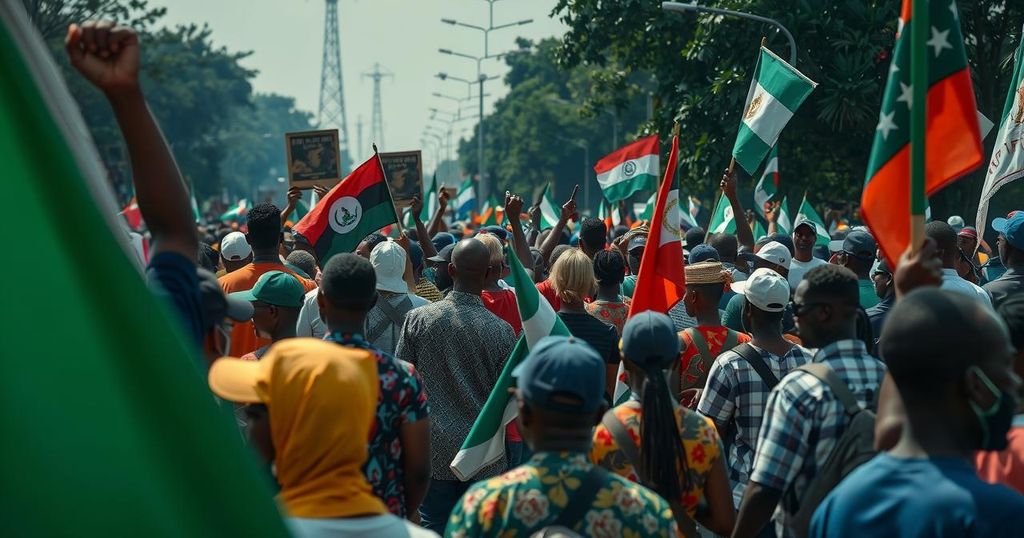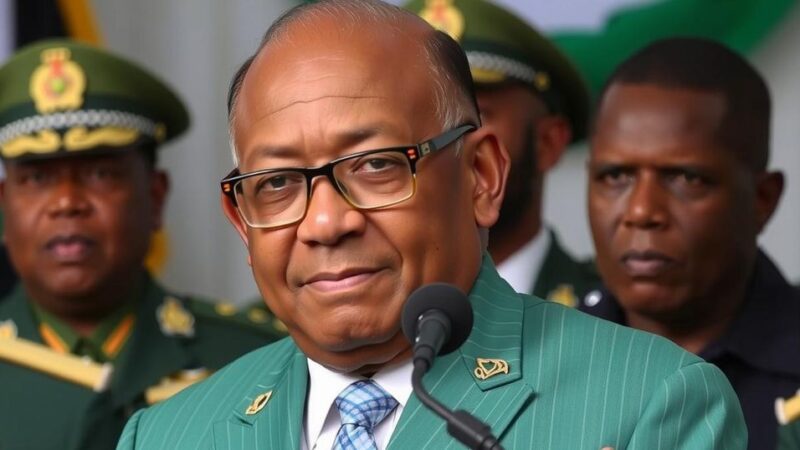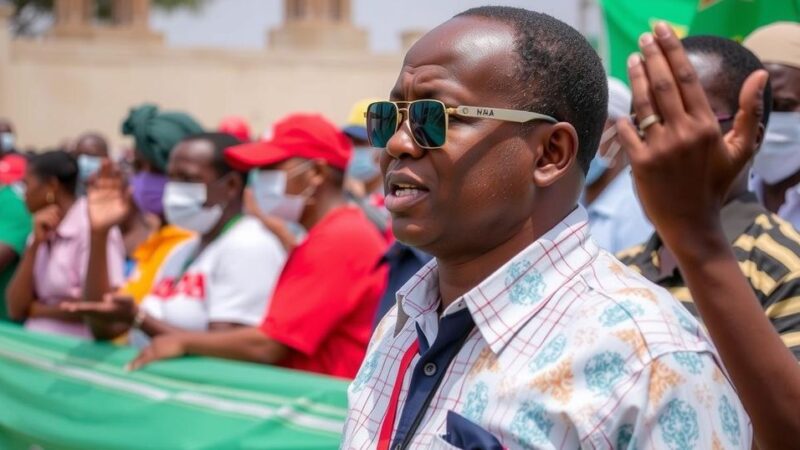Nigerians have taken to the streets again to protest against government policies that have led to severe economic hardship. Protests occurred in several cities, including Abuja and Lagos, amid cries for an end to hunger and bad governance. Activists criticize the government’s alignment with foreign interests while citizens struggle with soaring food prices and reduced living standards. Despite heavy police presence and past incidents of violence against demonstrators, there is a clear resolve among protesters to voice their demands for change.
In Nigeria, a surge of protests has erupted as citizens express their outrage against economic hardship that they attribute to government policies deemed as detrimental to the working class. The protests, which occurred again in the capital, Abuja, and other cities, were met with police resistance, prompting demonstrators to rally against hunger and poor governance. Activists have highlighted the drastic inflation that has led to soaring food prices and diminishing purchasing power, particularly affecting the already vulnerable populations. The protests coincided with Nigeria’s 64th Independence Day celebrations, as many feel there is little to celebrate given the dire economic conditions impacting daily life. The protests were led by organizations like the Take it Back movement, with its spokesman, Juwon Sanyaolu, condemning the government’s reliance on foreign measures that have exacerbated the economic situation for ordinary Nigerians. He criticized the government’s inaction as evidenced by the disconnection from the realities faced by the populace. The burdens imposed by increased fuel prices and electricity tariffs, as well as calls to release arrested demonstrators, formed part of the protest’s core demands. Despite a heavy police presence intended to deter gatherings, smaller protests still took place, particularly in Lagos. However, fears of violent reprisals from law enforcement were palpable, especially in the wake of previous demonstrations that resulted in numerous fatalities and arrests. Additionally, economic analysts have pointed to the harsh realities faced by Nigerians, many of whom are grappling with food insecurity and apprehensions about sustaining their livelihoods amid inflationary pressures. Amid these demonstrations, President Bola Ahmed Tinubu’s government continues to pursue economic reforms as recommended by international financial institutions. Critics argue that these reforms have disproportionately affected the poor while failing to deliver substantial relief within local communities. Economic experts have emphasized the urgent necessity for government policies that prioritize the welfare of the citizenry and address the critical issues surrounding food production, stability, and economic management in the country.
The ongoing protests in Nigeria are rooted in severe economic challenges that have plagued the nation, particularly in recent years. High food inflation rates have significantly increased the prices of basic commodities, pushing many individuals into food insecurity. Citizens are increasingly voicing their discontent towards government policies perceived as neglectful of the suffering experienced by the populace. The protests have reignited discussions on the role of government in protecting the rights and welfare of its people, especially in the context of economic downturns exacerbated by global economic conditions and local mismanagement. The responses from law enforcement during protests, combined with harsh economic realities, reflect ongoing tensions within Nigerian society about governance and accountability.
In conclusion, the protests across Nigeria highlight a growing dissatisfaction with governmental policies amid economic distress, particularly among the nation’s poorer populations. The demands articulated by demonstrators reveal a strong urgency for reform and accountability from the leaders in power. While the government attempts to implement austerity measures and economic reforms, the palpable sense of discontent suggests that without addressing the underlying issues of poverty and governance, unrest may persist as citizens seek a government that serves their best interests.
Original Source: www.aljazeera.com







